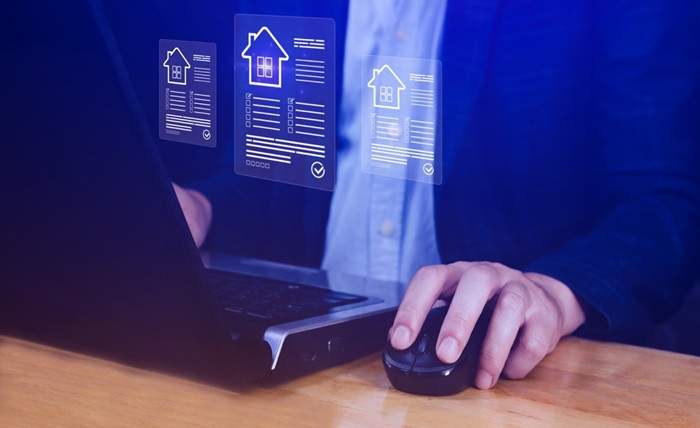
The real estate industry has embraced technology to optimize operations, increase efficiency, and enhance tenant experiences. Whether managing residential properties, commercial spaces, or mixed-use developments, adopting the right software for real estate management can transform how property owners and managers handle day-to-day tasks. Learn how property management platforms can improve workflow and boost profitability. Explore available solutions at https://www.unitconnect.com/.
Real Estate Software Manage: Enhancing Efficiency and Performance
Effective property management requires an organized approach to handling leases, maintenance requests, and tenant communications. Real estate software manage tools automate these processes, reducing manual workload and errors. Features such as automated rent collection, tenant screening, and financial reporting help real estate professionals stay ahead. Platforms like mogul further elevate this efficiency by offering modern, user-friendly solutions designed to streamline property operations, enhance communication, and simplify task management for both managers and tenants.
Key Benefits of Real Estate Software Manage Solutions
- Automation of Administrative Tasks – Reduce paperwork by automating lease management, invoicing, and maintenance requests.
- Improved Financial Oversight – Track rental income, expenses, and tax reporting with integrated accounting tools.
- Better Tenant Communication – Centralized platforms enable streamlined tenant interactions through portals and messaging systems.
- Maintenance and Work Order Tracking – Manage repairs and vendor relationships efficiently.
- Data Security and Compliance – Cloud-based solutions ensure data protection and regulatory compliance.
- Scalability – Whether managing a single property or an extensive portfolio, real estate software adapts to business growth.
- Legal Compliance Features – Many platforms include tools to track regulatory changes, ensuring compliance with local and federal laws.
Real Estate Property Management Software: Features That Matter
Choosing the right real estate property management software depends on the size and complexity of your portfolio. From single-family rentals to multi-unit commercial buildings, advanced tools provide comprehensive management solutions.
Essential Features in Real Estate Property Management Software
- Tenant and Lease Tracking – Maintain accurate records of lease terms, renewals, and tenant history.
- Online Payment Processing – Enable tenants to pay rent digitally, reducing late payments.
- Accounting Integration – Sync financial data with popular accounting software.
- Reporting and Analytics – Generate detailed reports on occupancy, financial performance, and property health.
- Mobile Access – Manage properties on the go with mobile-friendly solutions.
- Marketing and Vacancy Management – Automate listing syndication to fill vacancies faster.
- AI-Powered Decision-Making – Advanced systems use AI to predict market trends and optimize pricing strategies.
- Tenant Screening and Background Checks – Automated tools help landlords select reliable tenants, reducing risks.
Real Estate Software Management: Optimizing Daily Operations
Property managers and landlords need tools that streamline operations and provide real-time insights. Real estate software management ensures seamless coordination between owners, tenants, and vendors.
How Real Estate Software Management Improves Productivity
- Task Automation – Set up automated workflows for rent collection, lease renewals, and maintenance requests.
- Scalability – Suitable for growing portfolios, allowing easy addition of new properties.
- Legal Compliance – Keeps track of state and federal regulations to avoid legal issues.
- Integration with Third-Party Apps – Sync with CRM, accounting, and marketing platforms.
- Cloud-Based Accessibility – Real estate professionals can manage properties from anywhere with cloud-hosted solutions.
- Tenant Portals – Improve tenant experience with self-service portals for rent payments, maintenance requests, and communication.
Real Estate Software Property Management: The Future of Real Estate Tech
As technology evolves, real estate software property management continues to innovate, offering AI-driven insights, IoT integrations, and enhanced user experiences. Cloud-based platforms ensure accessibility from anywhere, while AI-driven analytics provide data-driven decision-making capabilities.
Emerging Trends in Real Estate Software Property Management
- AI and Machine Learning – Predictive analytics for pricing strategies and tenant retention.
- Blockchain for Transactions – Secure and transparent property transactions.
- IoT for Smart Property Management – Real-time monitoring of utilities and security.
- Virtual and Augmented Reality – Enhanced property showcasing and virtual inspections.
- Smart Home Integration – Landlords can offer smart home features like automated locks and energy-efficient systems.
- Energy Management Tools – Sustainability-focused solutions help landlords monitor and optimize energy consumption.
- Predictive Maintenance – AI-powered tools detect issues before they become costly repairs, improving asset longevity.
Choosing the Best Software for Real Estate Management
When selecting a real estate software property management solution, consider factors such as cost, scalability, ease of use, and customer support. Look for platforms that offer free trials or demos to assess their fit for your business needs.
Factors to Consider When Choosing Software
- User-Friendly Interface – A simple, intuitive dashboard makes daily operations smoother.
- Customization Options – Choose software that allows custom reporting and workflows.
- Customer Support and Training – Ensure the provider offers training and responsive support.
- Pricing and ROI – Compare different software solutions based on pricing, features, and potential return on investment.
- Cloud-Based vs. On-Premise Solutions – Cloud software offers flexibility, while on-premise solutions may provide more control.
Final Thoughts
Investing in the right software for real estate management can significantly enhance property operations, increase efficiency, and improve tenant relationships. By leveraging automation, real estate professionals can focus on growth and profitability. With the rise of AI, IoT, and cloud-based innovations, the future of property management looks promising.
One of the greatest advantages of real estate software management is the ability to streamline workflows and eliminate inefficiencies that often plague traditional property management processes. The days of manually tracking rent payments, handling maintenance requests over the phone, and struggling with paperwork are fading. Instead, landlords and property managers can access everything they need with a few clicks, leading to faster response times and improved tenant satisfaction.
Additionally, the adoption of real estate property management software helps property owners make data-driven decisions. With advanced analytics, real estate professionals can assess market trends, optimize rental pricing, and reduce vacancies. Predictive analytics can help forecast maintenance needs, ensuring that minor issues are resolved before they become costly repairs. This level of insight not only maximizes revenue but also extends the lifespan of assets.
Security is another crucial aspect. Cloud-based real estate software property management solutions provide encrypted data storage and compliance with industry regulations, keeping sensitive financial and tenant data secure. As cyber threats continue to evolve, investing in a solution with robust security measures can protect both landlords and tenants from potential risks.
Ultimately, real estate professionals who embrace modern software solutions gain a competitive edge in the market. Whether managing a single rental property or a large portfolio, the right technology can drive efficiency, enhance tenant experiences, and boost long-term profitability. Now is the time to explore and implement the best tools for your business, ensuring success in the ever-evolving real estate industry.




